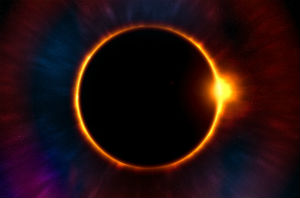What to expect during the solar eclipse - Reading in the news Fri 11 Aug
11 August 2017

Here is today's round-up of media coverage featuring the University of Reading.
European heatwaves: Professor Ed Hawkins (Meteorology) discussed on BBC Radio 4’s Inside Science (first interview) the extent to which climate change is increasing the frequency of heatwaves and threatening our health. Professor Hawkins also gave an interview to BBC World Service (3 mins 58 secs) about how deadly these heatwaves could be if they continue in the future.
Eclipse effects: A Buffalo News article explores the likely effects of the solar eclipse due to occur on August 21 (total eclipse in the US, partial in UK), and uses data recorded by the University of Reading to show wind speed is unlikely to increase as you might expect as the temperature falls while the Earth is in the moon’s shadow.
Autumn colours: The science behind leaves turning orange in autumn is explained in a Pro Landscaper article by Dr Glynn Percival (Biological Sciences), who is also Tree Physiologist at Bartlett Tree Research Laboratory.
Other coverage
- Cost Sector Catering quotes Matt White, Director of Catering, Hotel and Conference Services at the University of Reading and chair of the University Caterers Organisation (TUCO), in a story on how the university sector can avoid food waste.
- The Washington Post coverage of Professor Paul Williams’ research (Meteorology) on severe turbulence increasing due to climate change has generated some further articles, with the WP article being replicated on other sites such as Atlanta Journal Constitution and News India Times. Read our news story here
- Inc.com reports that eating berries can help prevent memory decline, according to research by the University of Reading (Food and Nutritional Science) and Peninsula Medical School.
